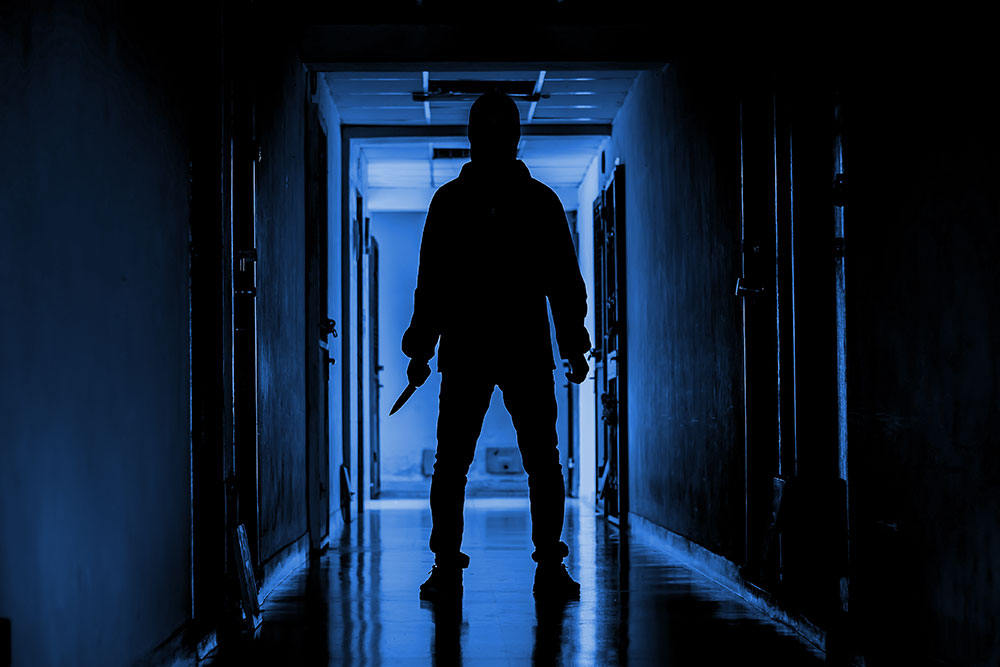
Life can be pretty scary at times and everybody is afraid of something. No matter how tough or fit or old you are, there’s sure to be something that you’re scared of. But some fears are more rational than others. Irrational fears can escalate into phobias.
A phobia can be a severe mental health condition. One of the most common phobias people can experience is nyctophobia, an irrational fear of the dark. It can affect adults as well as children. Dealing with a mental health condition can be incredibly difficult. People who have extreme nyctophobia can experience intense panic attacks. As well as causing mental health issues, phobias can negatively impact a person’s physical health.
There is often considerable stigma surrounding some phobias. But people who have phobias deserve understanding and to be treated with respect. If you or someone you know has nyctophobia, it’s a relief to know some treatments can make the condition better. In this article, we’ll shed some light on this mysterious phobia.
What is Nyctophobia?
The word nyctophobia is derived from the old Greek word for night.
Sometimes referred to as achluophobia, it causes people to have intense feelings of dread, anxiety, fear and panic when in darkness or when confronted with the possibility of being in a dark place.
People who have nyctophobia are afraid not of the darkness itself but of the perceived dangers the darkness conceals. In a sense, this phobia is very much a fear of the unknown.
Phobias often begin in childhood but, in some cases, can persist until adulthood. If it does, the symptoms associated with it can get worse as the person gets older. The longer they have the condition, the more ingrained and believable it becomes.
What is a Phobia?
It’s not unusual to be afraid of something or feel uncomfortable or uneasy in certain situations. But when our fears become irrational and we begin to arrange our lives around them, they can become a phobia.
Phobias are classified as anxiety disorders. Even the simple act of thinking about a situation can cause a person with a phobia to experience feelings of fear, dread and physical symptoms. Phobias can simply be caused by one specific situation or object or be complex. Being scared of dogs, for example, is a simple phobia. Phobias that are caused by anxiety about a situation or circumstance, however, are classed as complex and can be much more harmful to a person’s mental health.
For a medical professional to classify a person as having a phobia, the person must exhibit intense feelings of fear and panic that are hard to manage. Their feelings must be out of proportion to the risk level they face. The phobia must be an ongoing condition that has lasted for a minimum of six months. The person must consciously avoid situations or behaviours that trigger their phobia. Their sense of safety and well-being is negatively impacted, and the phobia significantly interferes with their daily life.
Data from the NHS shows that there could be as many as 10 million people with phobias in the UK in people of all ages.
How Common is Nyctophobia?
It’s widespread in young children. An estimated 40% of kids experience fear of the dark, according to psychological studies.
When it comes to adults, there isn’t a lot of reliable data. Many adults are ashamed of having such a ‘childish’ fear, so nyctophobia is very much underreported. Many people don’t even realise they are experiencing nyctophobia. Also, there haven’t been that many in-depth studies on nyctophobia. One study found that 11% of adults in the United States reported that they had an irrational fear of the dark. Another study found that 50% of American adults reported fear of the dark.
Nyctophobia in adults is probably a lot more common than we may think.
What Are the Symptoms of Nyctophobia?
People who suffer from nyctophobia experience a range of symptoms, including psychological symptoms such as:
- Fear, anxiety and panic
- Sleep issues
- Panic attacks
- Detachment
- Losing control or being immobile
- Powerlessness
- A feeling of being defenceless
- An impending sense of doom
Nyctophobia can also cause a range of physical symptoms, including:
- Dizziness
- Nausea
- Headaches
- Sweating
- Vomiting
- Chest pain
- High blood pressure
- Hot flushes or cold flushes
- Fatigue
- Tense muscles
- Trouble swallowing
The symptoms can vary in severity, frequency, and even when they happen.
What Causes Nyctophobia?
It’s tough to pinpoint the causes of phobias like nyctophobia. What we do know is that they are often linked to past traumatic experiences. Nyctophobia is frequently experienced by people who have post-traumatic stress disorder (PTSD).

You are also at risk of developing a phobia if you have:
- Depression
- A substance abuse issue
- A generalised anxiety disorder
- Other mental health issues
- Panic attacks
- A family history of phobias
How Can You Treat Nyctophobia?
Phobias of any sort can be challenging to diagnose and treat. Still, there are things that you can do to alleviate and deal with the symptoms, including:
- Meditation
- Breathing exercises
- Yoga
- Mindfulness techniques
- Cognitive behavioural therapy
- Exposure therapy
- Psychotherapy
Where to Learn More About Mental Health Issues
Mental health issues can have a severe impact on the health and well-being of the person suffering them and those around them. Friends, family members and colleagues can all be affected.
Unfortunately, many people who are suffering from mental health problems like phobias often find themselves isolated from their peers and support networks. Due to the stigma around mental health, many people simply don’t get the help they need to overcome their issues.
Understanding and compassion are the keys to breaking the stigma around mental health issues. By being more aware of them, we can assist people in finding the help they need, whether that is support from workmates, understanding from family, or professional therapy.
Our Mental Health Courses are designed to raise awareness and promote understanding about mental health issues in the workplace.
These courses will teach you how to recognise if someone has a mental health problem and what you can do to help.






















































































































































































































































































































































































































































































































































